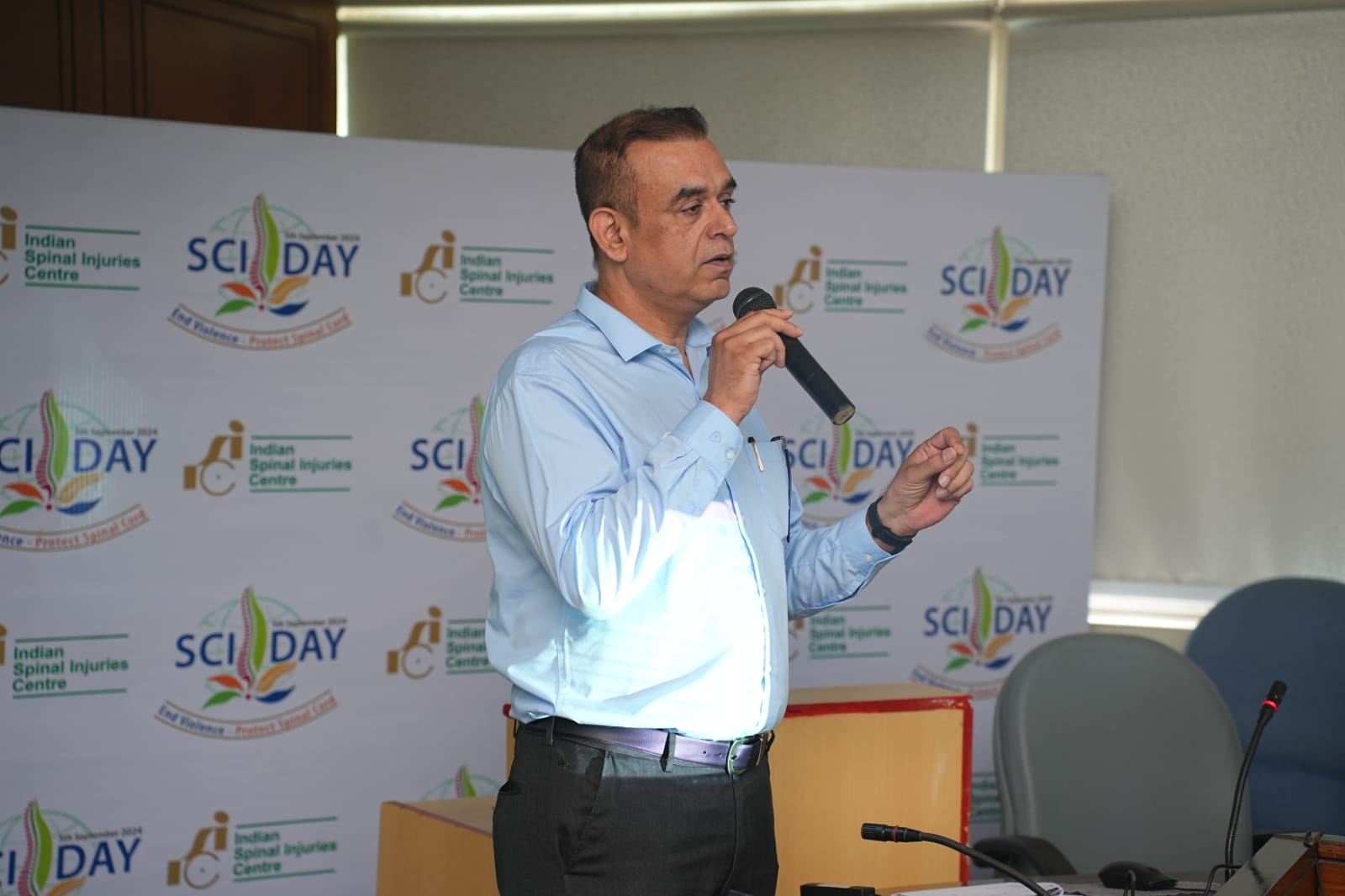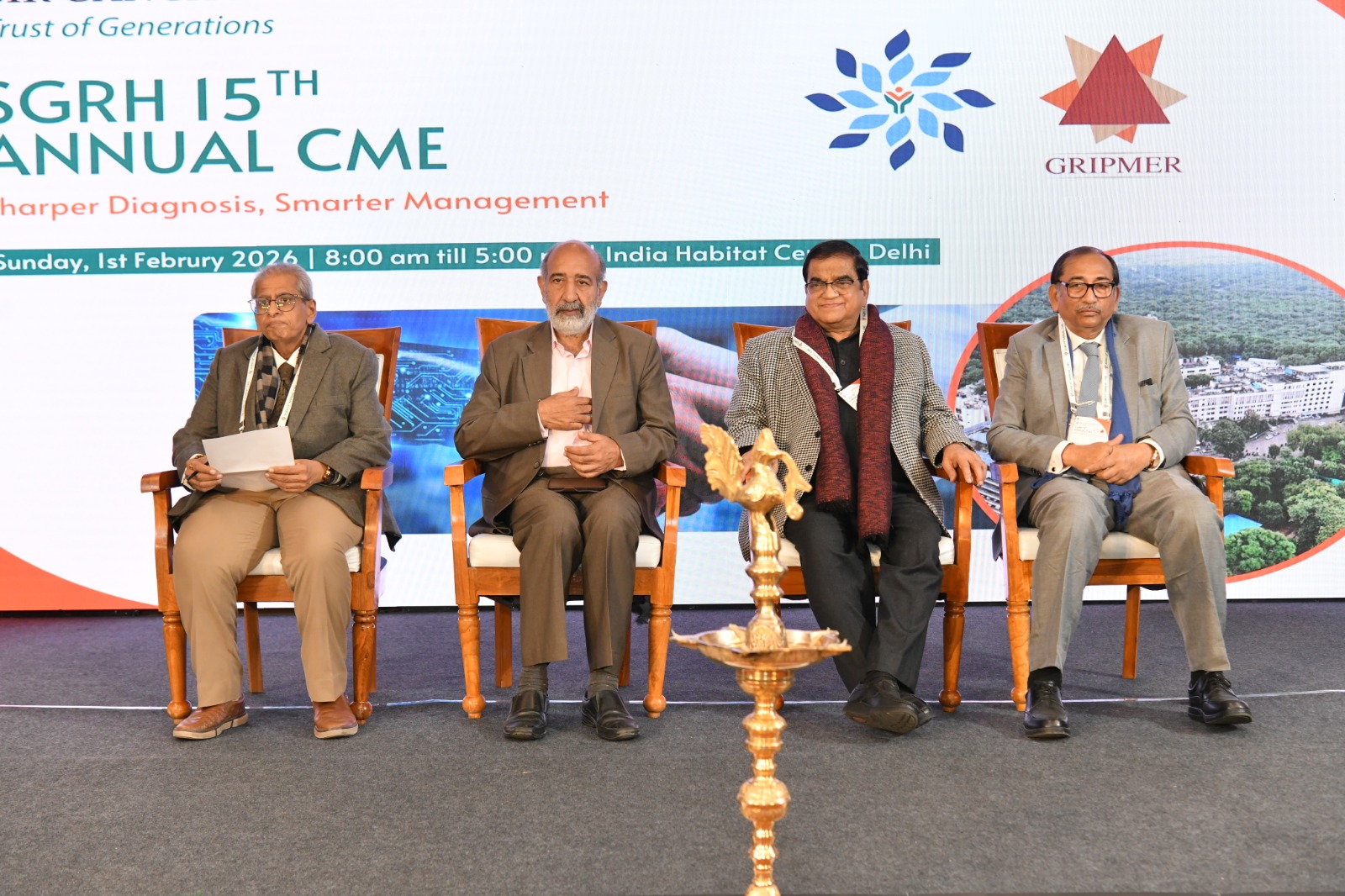
 New Delhi: There is scarce support for rehabilitation of people with injured spines in India. As there is no let up in factors causing spinal injuries, most people inflicted with this crippling event are spending their lives in utter traumatic conditions. They are being left to fend for themselves. Indian Spinal Injuries Centre (ISIC) has made a strong case for need of support for rehabilitation of such people.
New Delhi: There is scarce support for rehabilitation of people with injured spines in India. As there is no let up in factors causing spinal injuries, most people inflicted with this crippling event are spending their lives in utter traumatic conditions. They are being left to fend for themselves. Indian Spinal Injuries Centre (ISIC) has made a strong case for need of support for rehabilitation of such people.
Violence stands as one of the top three causes of spinal cord injuries (SCIs) in India, according to a recent study by the Indian Spinal Injuries Centre (ISIC). Analyzing data from 2012 to 2022, the study revealed that road traffic accidents (RTAs) accounted for 44% of SCIs, followed closely by falls from heights at 38.3%. Violent incidents, including stabbings and shootings, also significantly contributed to SCI cases, highlighting the diverse factors leading to these life-altering injuries.
The study encompassed 1,537 SCI patients admitted between 2012 and 2022, maintaining consistency with earlier findings from 2002 to 2010, which reported RTAs at 45% and falls at 39.64%. These persistent trends emphasize the urgent need for effective strategies to reduce the incidence of SCIs in India. A comparative analysis with the National Spinal Cord Injury Statistical Centre (NSCISC) data from Birmingham, UK (2010-2018), reveals that vehicular accidents accounted for 38.52% of cases, falls from height 31.13%, acts of violence 13.55%, and sports/recreational activities 8.57%.
In alignment with SCI Day 2024, themed “End Violence – Protect Spinal Cord,” ISIC is intensifying its awareness, preventive and curative efforts.
Dr. Vikas Tandon, Chief of Spine Services at ISIC, said, “Spinal cord injuries are not just physical afflictions; they profoundly alter every aspect of life, including emotional well-being, social interactions, and vocational capabilities. Our data underscores the critical impact of RTAs and falls on spinal health, with violence also playing a substantial role. Addressing these issues requires a comprehensive, multifaceted approach that includes policy recognition, enhanced safety measures, and robust treatment and rehabilitation services.”
Dr. Tandon further elaborated, “Our mission is to create a holistic solution for those battling spinal cord injuries, aiming to build a society that truly values diversity and inclusivity. We have put in place best-in-class facilities and services for all SCI patients, including those who are victims of violence.”
Rehabilitation is vital for improving the functional abilities of persons with spinal cord injuries (PWSCI). This multifaceted process includes physiotherapy, occupational therapy, peer counseling, plastic surgery, psychological mentorship, nursing care, assistive technology, urological care, and vocational support—often essential following surgical stabilization of the spinal column.
“Rehabilitation, which is critical in teaching patients to adapt to their new normal post-injury, remains inadequately covered under existing government schemes and insurance plans. Coverage for rehabilitation and assistive devices is essential for maximizing independence, yet it is often overlooked. Unfortunately, rehabilitation costs are rarely covered by government schemes nor by many insurance companies, posing significant financial challenges for SCI patients,”Dr. Gaurav Sachdevasaid the Head of the Rehabilitation Department at ISIC.
ISIC provides all solutions under one roof with 10 highly experienced, internationally trained, and dedicated spine surgeons. It has also established India’s first dedicated neuro-urology department to take care of SCI patients who suffer considerably after spine surgery and are neglected. ISIC supplements its treatment and care by providing world-class Rehab.
The experts narrated a traumatic and life-threatening conditions of a 10-year-old boy’s, victim of gunshot and his journey to normal-active life due to world-class treatment, care, and rehab at ISIC. A 10-year-old boy sustained a spinal cord injury after being shot in the back while playing on the street, leading to paralysis, loss of sensation, and severe health decline. Initially given only first aid, his condition worsened, resulting in septicemia and a urinary tract infection. One month later, he was brought to Dr. Neeraj Gupta at ISIC. Dr. Gupta performed surgery to remove the bullet, stabilize the spine, and address the spinal cord damage. Post-surgery, the boy’s condition improved, and he began rehabilitation.
Violence is not always direct and physical. There is a huge surge in mental issues in the society making people to take extreme steps leading to injury. In a case of Dr Tarush Rustagi, a 30-year-old male, who following domestic violence, jumped from second floor. He sustained injures to his back and wrist and was completely paralyzed waist down. Following his surgery and rehabilitation including psychological support, he made a remarkable recovery from being completely paralysis to his normal life.
The study and these two cases not only show the important of proper spinal cord care but also more importantly, the need to address issues related to violence (direct and indirect) that lead to such incidents.
As India faces the staggering reality of thousands of fatalities and with 1.5 million people living with spinal cord injuries, the call for a robust support system is now more critical than ever. On the occasion of SCI Day, the experts at ISIC strongly advocated for a holistic solution that includes surgical interventions and comprehensive rehabilitation programs.








